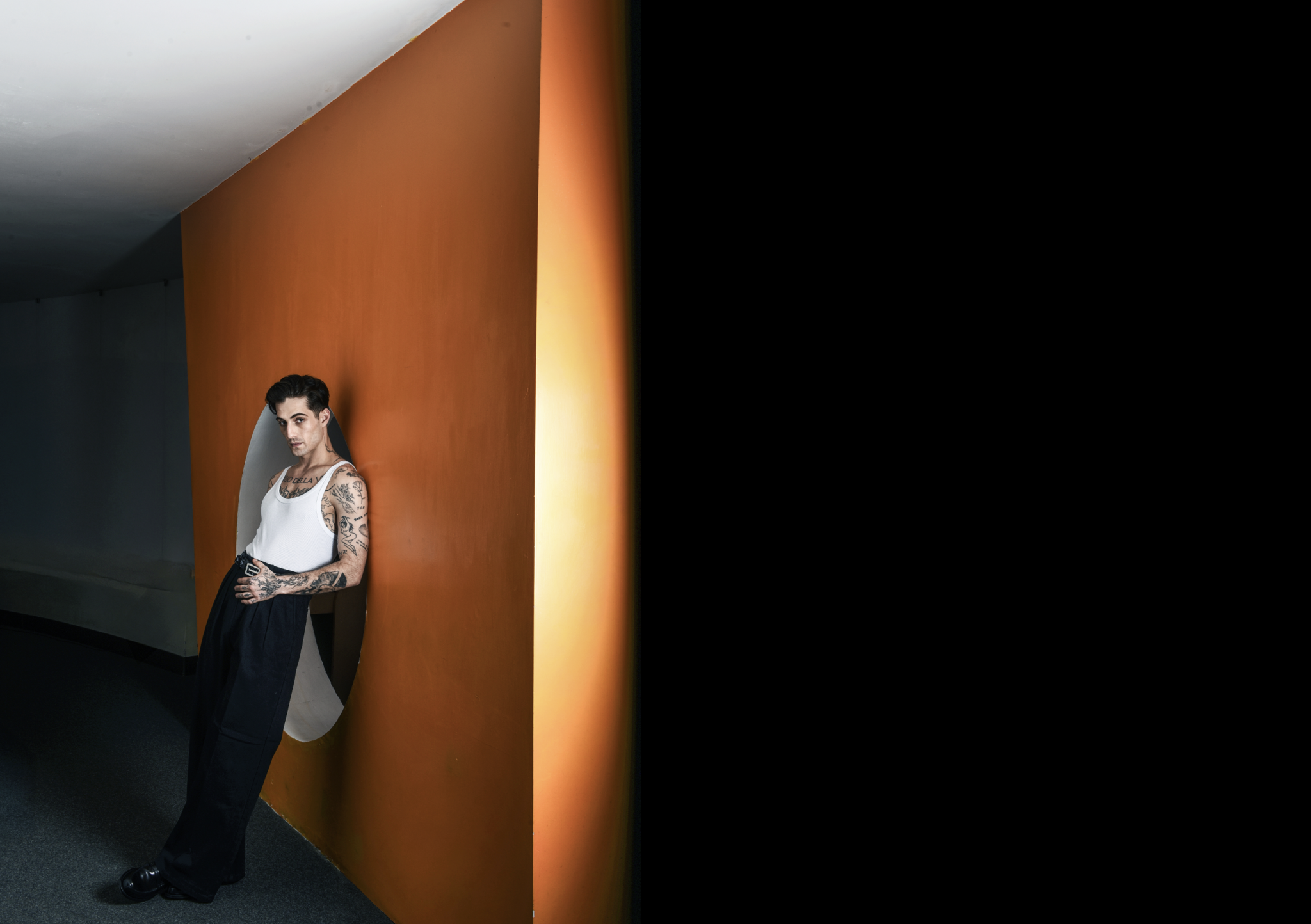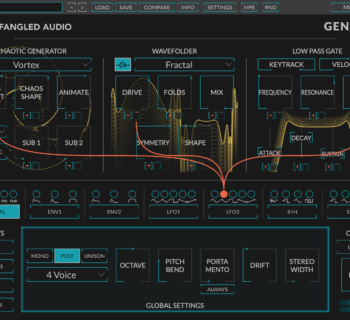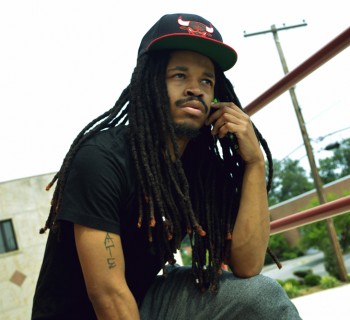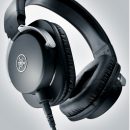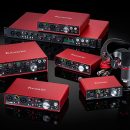For the past 20 or so years, I have been an entrepreneur. What that means is that I don’t like holding a regular job, have too many ideas at any one time bouncing around my cerebrum, and that I’m not very good at doing the same thing for any extended period of time. It also means that I’m not risk averse, I don’t mind taking chances, I’m ready to work incredibly stupid hours while making little to nothing, and with no guarantee that I ever will. I do what I do because I believe in the projects I work on.
Entrepreneurs share a love of moving life, business, and the world forward, sometimes with little regard to their own livelihood. They also thrive on making things happen and are charged up by new ideas. I believe we live in the best of times to become a music entrepreneur, given the changing music industry and the potentially endless possibilities leveraging technology.
In the past ten years, I have started eight technology-driven companies, ranging from advertising software to personalized endurance-race videos to founding the Hard Rock Academy, Reeltracs, and MyMusicSource. Every one of these companies had relevance and a reason for being (at least I thought so), delivered a great service, or automated a complex process. Some have done well while others have failed for a variety of reasons.
If you are the type of person who wakes up in the morning with a new idea that you believe will change the world, and understand enough about business to make a good business case for your idea, then you might think about the entrepreneur route. You’ll need the ability to sum up your idea and value proposition in a couple of sentences, and also have the stick-to-it-ness to persevere even when things are not working out the way you expected, because they rarely do.
Experience has taught me that before I get too excited about my idea, I need to spend some time in concentrated and focused thought, perform the due diligence, and make sure I believe my own press, so to speak. Many times, we have ideas that seem like the best thing since sliced bread, only to find out that nobody else cares about our great idea and won’t support or adopt it. You may find that there is no real market for your idea or product, so beware your self-proclaimed genius and do your homework. It is well worth it.
I have a close friend, Fritz Lehman, and together we founded the Hard Rock Academy a few years back with the Hard Rock Corporation. The business is what School of Rock is today but supercharged by the Hard Rock brand name. The mission was to give kids a chance to experience playing an instrument, playing in a band, and generally feeling like a rock star. The short story is that a few Hard Rock executives made corporate changes and the academy was dumped as part of a new corporate mandate. The reason I tell you this is to make one simple point: To be successful in music, or any business for that matter, you need to put yourself out there, try things, and take chances. Some will rock and some will not.
Hard Rock was one that should have been wildly successful, but because of changes beyond our control and another insane partner (not Fritz), it fell flat on its face; there’s another lesson here: Pick your friends and partners well. Today’s best friend and partner could well become tomorrow’s mortal enemy. So hang out with them for a while and understand their character before going into business together.
Entrepreneurial endeavors make for an exciting life, but it’s not for the faint of heart. My brother-in-law, who has been very successful in business, once asked me, “Mike, why are you always doing start-ups? They are so hard. Just buy a little business that’s making a few bucks, tweak it a little bit, and generate more money.” I do believe that’s some of the best advice I have ever been given, but after trying to find a business for a year, I slipped right back into my ideas. It just isn’t as easy as Richard said because we are all wired differently.
A good friend of mine, Jeff McElnea, told me about a young man who was doing a start-up and asked if I would meet with him over dinner one night and possibly give him some advice. That guy was Dan Zaccagnino, the founder of Indaba Music. All I can say is that he didn’t need any of my advice. He rocks! Forward thinking, smart, quick, and a gentleman.
Dan Zaccagnino
CEO and Founder, Indaba Music
Dan is one of the founders of Indaba. Their office in located in New York, where they share space with other innovative companies, one of which is Foursquare. It seems appropriate because Indaba is all about new thinking and helping musicians find industry access while they hone their craft.
I recently visited Dan’s starkly decorated office, which looks a bit like the early incarnations of the Facebook workspace; empty walls waiting for inspired murals, and rows of computers lining foldable tables with wires in what you might think are meaningless tangles but with purpose. Dan and I sat in a makeshift meeting room with a huge flowchart of the first version of the Indaba website mounted on the wall. We talked about life and business and of course what it’s like to be an entrepreneur.
What inspired you to start the widely successful Indaba Music company?
Throughout college I had interned at major record labels—specifically for (one of my future Indaba business partners) Mantis Evar at Blue Note Records and later for the CEO of Virgin Records. Simultaneously, I had also been working on creating a student-run record label to record and promote bands on campus with Matt Siegel, another soon-to-be Indaba co-founder.
There were really two things that inspired us to start Indaba Music. The first was the fact that digital production technology had become so inexpensive that anyone could produce studio-quality music in their own bedroom with tools like Pro Tools, Logic, Audacity, and GarageBand. There’s no question there were more people making and recording music than at any other point in history.
The second thing was that the web was connecting musicians and fans in ways never before possible. One of the major problems facing musicians was, “How do I get these 800 CDs I just printed into the hands of fans beyond handing them out at local shows?”
The distribution issue had evaporated on the web because you could e-mail a five megabyte song to a person in China just as fast as you could get it to your next-door neighbor—that level of connectivity was very exciting to us, but everyone was still focused on the distribution, consumption, and promotion part of the value chain. No one was applying the power of the web to musicians’ creative process in a meaningful way.
So we envisioned this idea of creating a platform that took these concepts and put them together specifically for musicians and their creative process. It would be a social and professional network where you could meet other musicians, exchange files, write music together, and produce music for fun and commercial release.
Can you tell me exactly what Indaba Music does?
It’s evolved quite a bit. The original concept was to create a social network so that people could actually collaborate online. For example, a bass player in L.A. could record a bass track and a guitarist in New York record a guitar track, and then you could mix and edit them together either using any of the tools that we’ve already talked about (Pro Tools, Audacity, Logic) or using our web-based digital-audio workstation.
One of the things that was so encouraging was as people started to make more and more music on our site, we attracted a lot of attention from the more established music industry. Record labels, managers, publishers, even consumer brands who saw all this creative activity wanted to tap in to us—either to draw on the community’s creative power as a promotional tool for their brand, or to source new content via our songwriters and producers.
As we grew, we started to run contests and other opportunities where you could remix a Mariah Carey song or write a virtual duet with Yo-Yo Ma or write an original fight song for your favorite NFL team. Many of these compositions and recordings have been released by established labels (over one hundred records have been released commercially) and licensed for film and TV, and have received other forms of exciting exposure.
Because of all this activity, Indaba has become much more of a marketplace—connecting our community of over 675,000 musicians with opportunities to create new music for brands, major artists, publishing companies, and so on.
This is a one-of-a-kind service, and has tremendous potential to expand and further
change the way music is created. How did you finance this business, Dan?
To finance the business, originally we didn’t go straight out into the venture community, but instead chose to go the route of talking with angel investors and friends and family to try to raise seed capital. We really wanted to have a product, and not just vaporware, before we had started to talk to any institutional investors.
Some people would say, “I’m not interested in investing, but I know this person in the music industry that you should really talk to.” Through those types of conversations, we met some really incredible people, one of which was the woman who ultimately became our lead investor and has been the chair of our board for the last five years.
Martha Crowninshield is a general partner emerita at Boston Ventures and most well known for her work in the entertainment business—she bought and sold Motown Records in the one of the biggest turnaround deals the music industry has ever seen, and also sold Billboard magazine to Nielson. We were very fortunate that she stepped in to finance Indaba personally, but also because she has been incredibly valuable as a mentor.
Can I put you on the spot here and ask you: Is Indaba Music in the black and profitable?
No. We’re not, by design. We are following our business plan, which calls for us to establish a critical mass of our community, which is our most valuable asset. We took a very deliberate strategy to offer a lot of free features, and at a certain point, which we thought was about 500,000 musicians, we would launch a subscription service, which is the core of our business model.
We reached that goal at the end of last year and are now offering additional services: for example, you can network and record for free, but if you want to sell your music on iTunes, you have to be a pro member. That’s the first level of our premium subscription. It is working very well for us, but we are just at the beginning of that now.
Can you tell me some of the challenges you’ve faced with millions of other music-related sites saturating the web?
One of the things that is always challenging is the recorded music industry. They still have this huge asset [all of the songs that have ever been recorded] and four companies primarily own them, but they don’t know how to leverage them online. It can be a challenge to work with them because they are very cautious. They’re afraid to do something online that might change their business model and open a door that can’t be closed.
Another challenge is the artist trust factor. When we worked with John Legend or the Roots or Mariah Carey or Peter Gabriel, we had to win their trust and prove that what we offer has value to them, wouldn’t damage the asset they work so hard to protect.
And then there are challenges that are more intrinsic to just running a business online, which is that a lot of people expect a lot on the web for free, and when you don’t give it to them, they look somewhere else. So striking that balance is tough. It’s hard to say at some point, “You know, you’re getting so much value out of this, you should be paying $50 a year.” Defining that point and what you put on each side of that line is always a challenge and something that we’re just now addressing.
Was there a moment when you realized, “Oh my gosh, Indaba Music, we’re going to be successful”?
One of the things I’ve found as an entrepreneur is that you never really feel like your business is successful, meaning that it’s reached its end point, but it is important along the way to celebrate your smaller victories. Early on, I felt like Indaba was successful when there were 1,000 users, then had that same feeling when we hit 100,000 users.
Every time we’ve done something technologically challenging, like the digital-audio workstation that’s in-browser and provides all these high-quality recording tools for people, it was a very significant technological achievement for us. All along the way, we try to feel like we’re doing things that are successful, but that doesn’t mean that that there isn’t so much, much more we aspire to accomplish.
So now we know the abridged history and current status of Indaba, but what about you? I know you’re a musician. Can you talk a little bit about that? Your love of music.
I started playing acoustic guitar when I was around ten and spent every free minute after school playing. That really got me into listening to music a lot more than I ever had before, so I started collecting CDs, and now I have a big vinyl collection and a digital collection.
I turned my bedroom into a recording studio with a mattress, which my parents were not thrilled about, but I did anyway. By the time I got to high school, I played in a couple bands and would record for other bands in the area all through college. I still play music, write a little bit, and collect acoustic guitars, but certainly after starting Indaba, it’s been much harder to find the time to make music.
If you were to give yourself some advice and just starting out, what might that advice be?
I think there are important business issues that really don’t matter whether you’re starting a law firm or a music company. You have to understand everything about the business structure so that you set yourself up to be successful and so you can focus on the creative aspect of our endeavor. You should think about how you can set up the control of the company so that you never find yourself in a position where your company isn’t yours anymore.
In terms of things like equity and ownership, it’s great to own 100 percent of your company, but if you own a very big piece of a very small pie, it is never going to be as good as owning a small piece of an enormous pie. We have people who feel a real sense of ownership, and we’re all working for something more than just a paycheck
.
Where do you see yourself, or your company, in five years?
I would like to continue to see Indaba grow as there are so many different directions that we could go. We are extremely focused on progress, but it’s very hard to predict our path.
There have been some big music-industry shifts since we started Indaba and there will undoubtedly be more. That could result in our merging with another company, being acquired, or even Indaba acquiring other companies.
I would also like to get more involved in finding my creative energy to get back to making and producing music. I’d like to see a recording project through from start to finish and do that with friends for fun—for our passion around recording.
What does the future of the music industry look like from where you’re sitting today?
That’s a really good question, obviously, one that a lot of us think and talk about. I definitely think that music publishing is going to continue to play a huge role in the monetization of music because you have so many more musicians that are creating and owning their own masters or working outside of the label system. So there’s a huge opportunity in music publishing through placements, including commercials, films, live events, etc.
The real value of music is as great as ever, and corporations, companies, and brands are going to license that music and pay for it. I think that that’s important for emerging artists.
Beyond that, I think that entrepreneurial artists will continue to find new ways to take over more of their own business responsibilities. There have been a lot of great web-based tools to help them manage their fan list and digital distribution. It’s a relatively fragmented space to date and it’s frustrating that you have to sign up for ten different accounts to do all these different things.
Ultimately, there will be a consolidation of all these services, with a few key companies that will help an artist or manager work the entire process from production to merchandise to CD printing and distribution.
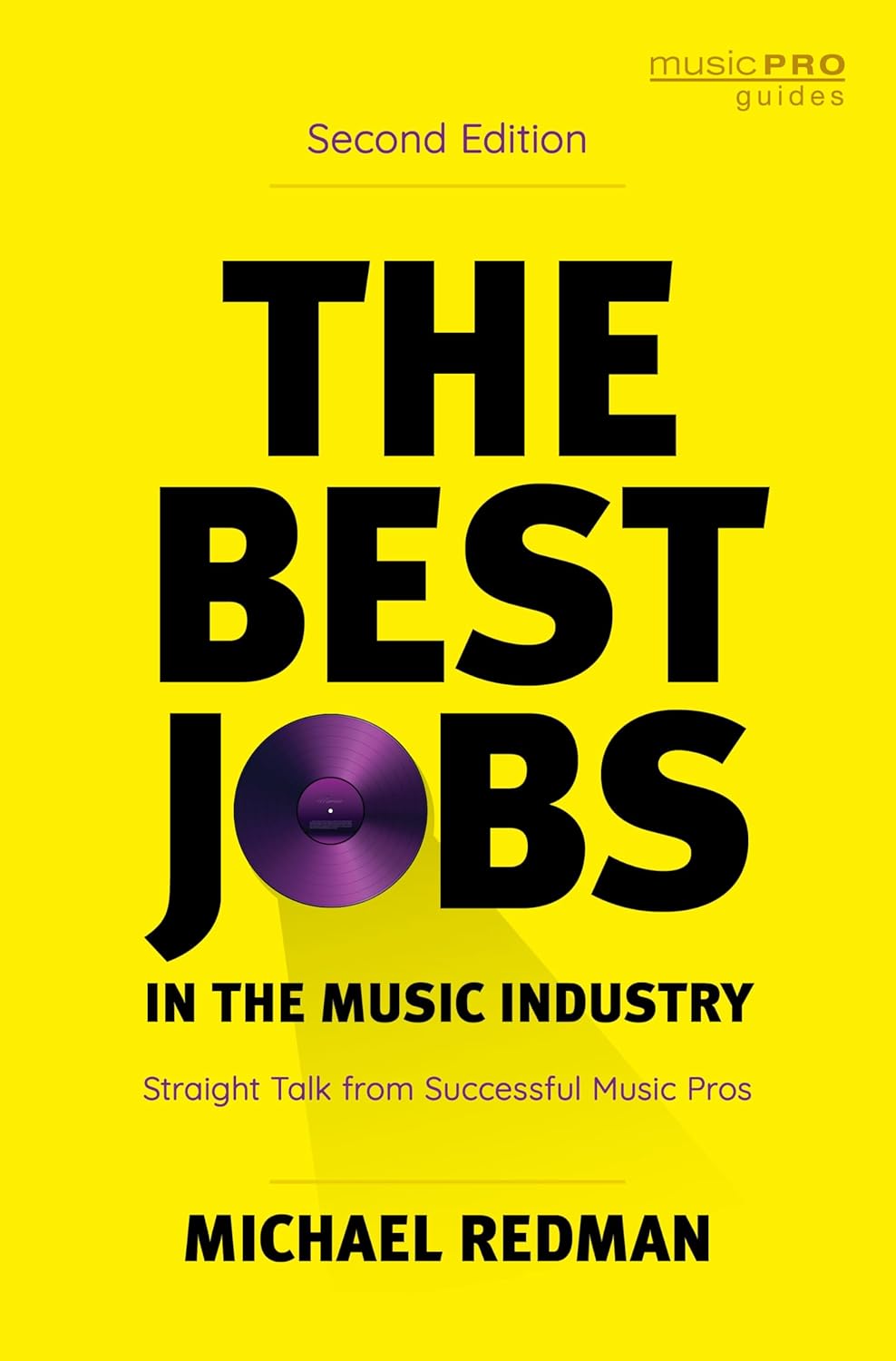
Rapid Fire
Skill Set—Education is a plus because entrepreneurs develop new businesses. You must be good with people, as you will spend much of your time on business development, raising capital, and presenting your ideas. Therefore, presentation skills are a plus, being unaffected by jet lag, feeling comfortable with risk, understanding multiple technologies, being a fast thinker, having a thick skin, and... coming up with an idea a minute doesn’t hurt either. It also is nice if you know people with money who believe in you, want you to do well, and can provide some financial assistance in the start-up phase. They are what we call angel investors. They provide the seed money that brings ideas to life.
Hours—There are no typical hours for an entrepreneur, but you probably should know they are long. It’s not unusual to work seven days a week for a year to get your idea off the ground. I should say, however, that you will most likely love every minute of this process. Not a good job for new parents! Upside—Everything—if you are successful. A real entrepreneur will take failure in stride and keep moving forward, always looking for the next opportunity.
Downside—Everything—but it will likely be a lack of adoption for your idea or company. There can also be significant financial risk because most investors will also want you to have some skin in the game; that way, they know you will work hard and if the venture fails you will also lose money.
Financial—The sky is the limit, but your own pockets and bank account will shrink during the start-up process and there is always the possibility of financial ruin. As I said—the greater the reward, the greater the risk.
Location—Anywhere, as long as you are willing to travel and have the funding to do so. Otherwise N.Y.C., San Francisco, or L.A. are good bets, especially if you have a family, because the travel can be a real strain on your personal relationships.
Future—For the right person with the right attitude and commitment to your ideas, it is very promising. Music tech start-ups are popping up every day. Remember that only 20 percent of these start-ups will make it past the first year, and even fewer will still be in business in the critical fifth year, when most tech companies move in the black and start making money. The upside of a tech start-up is that you can be quite successful with the right group of people and without breaking the bank.
MICHAEL REDMAN is an award-winning composer, engineer, director, producer, and author. He has been a serial entrepreneur for most of his career, having started over nine companies, including The Hard Rock Academy, PowerHouse Music Library, and BackStage Fan. Redman has also published three books, two of which focus on the Best Jobs in the Film and Music Business and his highly regarded visual entertainment company RedHouse was one of the largest Film Production and Technology firms in the Southeast. Currently, Redman is a career coach for people in the entertainment industry, and is the host of the podcast "GIG with Mike Redman."


